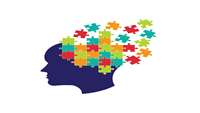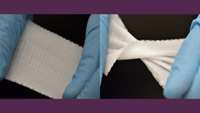Stem cell transplant benefits older adults with MDS
Among older patients with myelodysplastic syndrome (MDS), survival rates are better for those undergoing allogeneic hematopoietic cell transplantation (HCT), according to a study presented at the annual meeting of the American Society of Hematology, held virtually from Dec. 5 to 8.
CRISPR CTX001 Clinical Trial: Promising Results in Sickle Cell Patients
Sickle cell anemia and beta-thalassemia are serious genetic blood disorders, caused by mutations in the gene that produces beta-globin, a component of hemoglobin.
Elevated biomarker for blood vessel damage found in all children with SARS-CoV-2
Researchers at Children's Hospital of Philadelphia (CHOP) have found elevated levels of a biomarker related to blood vessel damage in children with SARS-CoV-2 infection, even if the children had minimal or no symptoms of COVID-19.
Lab-grown human brain organoids mimic an autism spectrum disorder, help test treatments
Most autism spectrum disorders have a complex, multifactorial genetic component, making it difficult to find specific treatments. Rett syndrome is an exception.
Researchers develop method to regrow cartilage in arthritic mice
Researchers at Stanford University School of Medicine (CA, USA) have discovered a way to regenerate cartilage in mouse and human tissue. The study was recently published in Nature Medicine, and builds on previous research at Stanford that resulted in the isolation of the skeletal stem cell responsible for the production of bone and cartilage.
Scientists develop new gene therapy for eye disease
Scientists from Trinity College Dublin have developed a new gene therapy approach that offers promise for one day treating an eye disease that leads to a progressive loss of vision and affects thousands of people across the globe.
Scientists replace malfunctioning 'vacuum cleaner' cells linked to neurological disorders
Researchers at Fudan University in Shanghai, China have developed three different techniques that successfully replace almost all malfunctioning microglia—each technique with its own advantage in application.
3D-printed Biomesh developed to promote hernia repair
Researchers from the Baylor College of Medicine (TX, USA) have developed a novel Biomesh to overcome postsurgical hernia complications. Their novel regenerative approach provides mechanical support to the injury site, whilst also acting as an inflammation modulating system.
Researchers develop new biomaterial that helps bones heal faster
Scientists have developed a new biomaterial that helps bones heal faster by enhancing adults' stem cell regenerative ability.
First stem cells discovered to produce placenta cells
An international study led by researchers at Monash University (Melbourne, Australia) and Duke-NUS (Singapore) has reported the discovery of novel stem cells that can produce placenta cells. This world-first discovery may open a new avenue of therapy for placenta complications during pregnancy.












